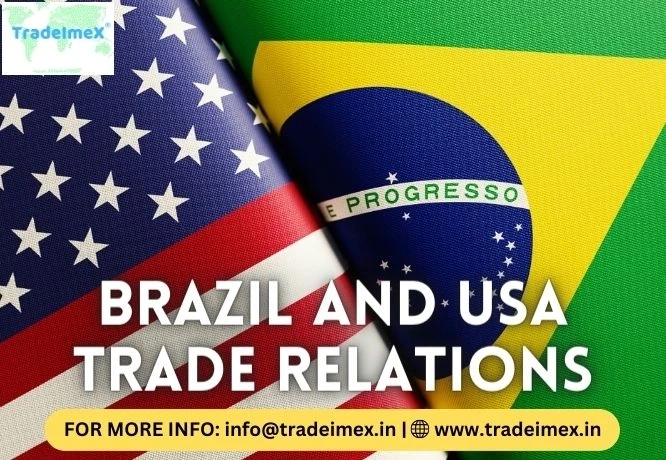Brazil and the United States share a trade relationship that spans decades and continues to evolve in response to economic, political, and global dynamics. As two of the largest economies in the Western Hemisphere, both nations have significant stakes in maintaining a fruitful and balanced trade partnership. This blog explores the historical context, current state, and opportunities in Brazil and USA trade relations.
HISTORICAL CONTEXT
Bilateral relations between Brazil and the USA can be followed back to the mid-nineteenth century when the two countries started trading different merchandise, including agrarian items, materials, and minerals. Throughout the long term, the relationship has seen times of development and misfortunes, driven by changing political scenes and monetary strategies. The good neighbor Strategy during Franklin D. Roosevelt's administration during the 1930s denoted a time of fortified strategic ties and business participation.
CURRENT TRADE SCENARIO
Today, Brazil and the USA maintain a significant trade volume, making each other one of their primary trading partners. The bilateral trade has been characterized by mutual benefits, where Brazil primarily exports commodities such as soybeans, coffee, beef, and iron ore to the USA. In return, as per the USA Export Data report, it exports machinery, aircraft, medical equipment, chemicals, and technology products to Brazil.
According to the United States Trade Representative (USTR) data, the total trade in goods and services between the two countries was valued at over USD 90 billion in 2022. While the trade balance slightly favors Brazil, the USA continues to be a crucial market for Brazilian exports.
OPPORTUNITIES FOR COLLABORATION
During times of difficulties, there are a few opportunities for Brazil and the USA to extend their exchange joint effort. One of the key regions is sustainable power and natural innovations. The two nations have made progress in sustainable power improvement, and an organization in this area could prompt information sharing, speculation, and headways in clean energy arrangements.
Besides, the USA's solid innovation and development of biological systems can supplement Brazil's developing startup and tech scene. Coordinated efforts in innovative work, as well as interests in the innovation area, could cultivate advancement and fortify the two economies.
Agriculture stays the primary area for the two countries to boost their trade relationship. Brazil's huge rural assets and the USA's high level of agricultural innovation offer possibilities for collaboration in economic cultivating rehearses, food security, and exploration to address worldwide agrarian difficulties.
GEOPOLITICAL IMPLICATIONS
The Brazil and USA trade relationship also has geopolitical significance. A robust and mutually beneficial trade partnership can act as a stabilizing factor in the region and strengthen both countries' positions on the global stage. It can foster greater political cooperation and alignment on regional and global issues, ranging from climate change to international security and finally give a positive pump to the trade reports and insights such as the USA Import Data insights and much more.
CONCLUSION
Brazil and the USA's trade relationship is a complex yet dynamic partnership that has endured over time. Both nations hold strategic importance to each other as major players in the Western Hemisphere.
Addressing the opportunities will require diplomatic efforts, political will, and mutual understanding. As both countries navigate the changing global economic landscape, a healthy and balanced trade partnership will not only benefit their economies but also contribute to regional stability and progress on shared global challenges.
We hope you liked our blog post and we are sure that you would be having doubts regarding the same. Don’t worry, contact TradeImeX and get all your queries answered with professional solutions and real-time figures.
Email: info@tradeimex.in
Source URL: https://www.atoallinks.com/2023/brazil-and-usa-trade-relations/


